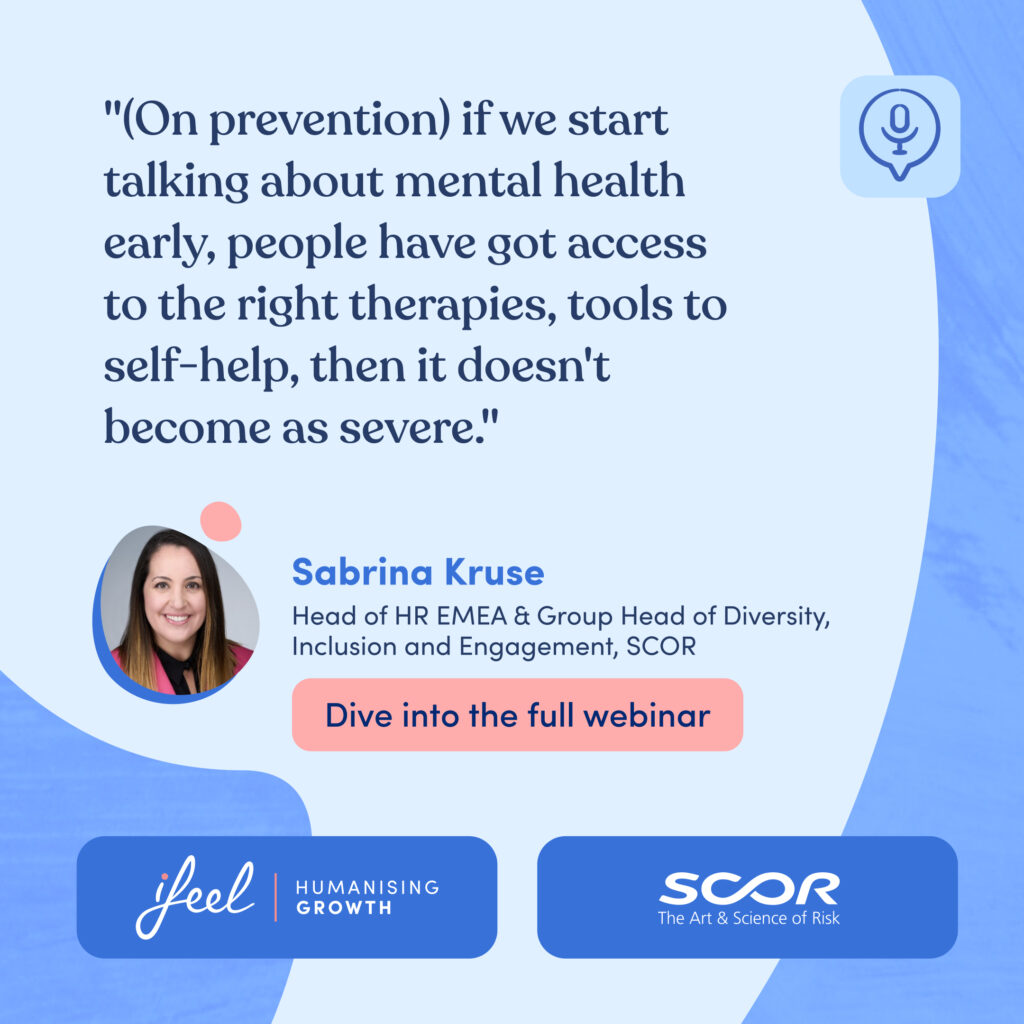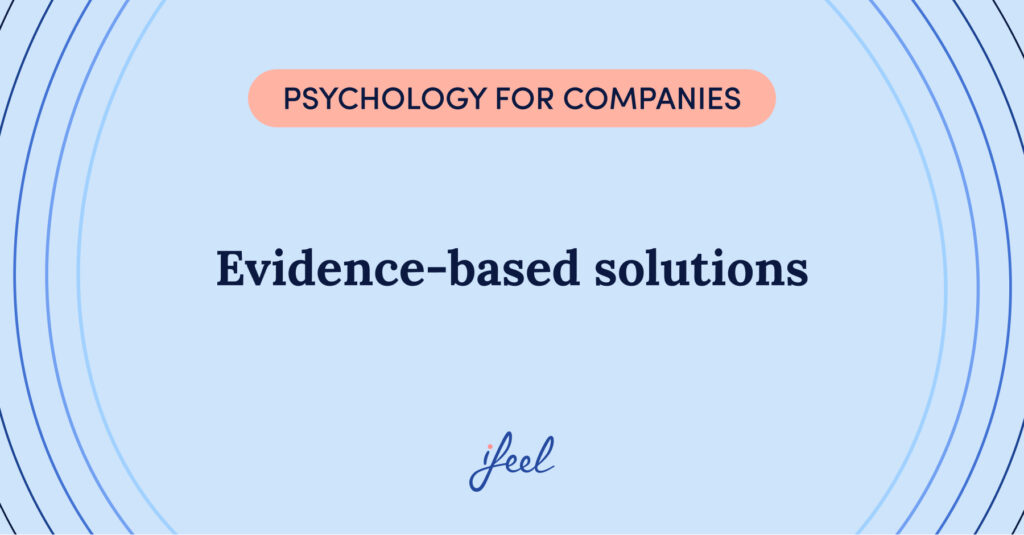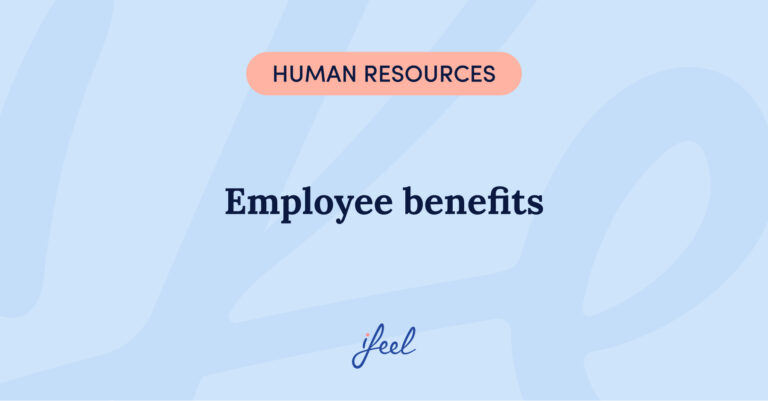Evidence-based solutions in mental health have finally earned their rightful place on the corporate agenda. However, we are witnessing a worrying ‘rebound effect’: the hasty adoption of wellness initiatives ‘because it has to be done’, without a thorough analysis of their alignment with the specific needs of the organisation.
This random implementation is not only costly, it is counterproductive. Without rigorous clinical triage, structured protocols, and impact metrics, these superficial interventions create a dangerous illusion of protection while exacerbating the problems they seek to solve: they increase absenteeism, perpetuate patterns of stress, and compromise confidentiality, eroding employees’ trust in the organisation’s care strategies.
Not to mention that they divert valuable resources to low-impact initiatives and delay care for the cases that need it most, increasing human risk and, of course, financial cost.
In enterprise organisations, improvising in mental health is even more dangerous: a misdiagnosis or inappropriate intervention can trigger long-term sick leave and accelerate talent drain.
The truly responsible and strategically profitable alternative lies in implementing evidence-based solutions that ensure both optimal care for your talent and maximisation of the return on every resource invested. This is the crucial distinction: while some organisations merely ‘go through the motions’ with superficial programmes, visionary companies genuinely protect their teams’ well-being, simultaneously strengthening their financial position and organisational culture.
The financial impact of not having evidence-based solutions
The real cost of poor mental health in the workplace manifests itself in three critical dimensions: prolonged absenteeism, unproductive presenteeism, and avoidable talent turnover.
That is why improvising in this area generates three additional types of risk with a direct impact on business results. First, inaccurate triage can lead to the misallocation of resources and delay people receiving effective treatment. Second, the absence of clinical and financial metrics makes it impossible to make informed investment decisions. Finally, vulnerabilities in data management and confidentiality breaches can irreversibly erode organisational trust.
That is why ifeel’s evidence-based solution is the best option. This methodology neutralises these risks through validated clinical protocols, advanced data analysis and healthcare-level security standards.
Translating scientific rigour into financial efficiency
Our evidence-based solution stratifies the population according to risk levels (low, medium, high) and assigns interventions tailored to each case: from preventive psychoeducation to text therapy or individual video call sessions, complemented by specialised protocols for critical cases.
This personalised approach based on clinical profile significantly reduces treatment duration, optimises progress, and decreases absenteeism attributable to mental health, generating substantial savings for organisations. By precisely allocating therapeutic resources according to actual need, avoiding both ‘over-treatment’ and under-treatment, we optimise every euro invested and eliminate the waste inherent in generic programmes.
This clinical efficiency translates directly into financial efficiency, resulting in lower spending on unnecessary interventions, reduced costs due to temporary disability, and a maximised return on investment in well-being.
Ethics and clinical integrity: indispensable in an evidence-based solution
In the field of corporate mental health, ethics is not an abstraction; it is embodied in rigorous protocols, qualified clinical supervision, and absolute transparency. ifeel implements this commitment through a comprehensive system that ranges from specific protocols for high-risk situations (workplace harassment, suicidal ideation, acute crises) to an intervention framework that prioritises clinical accuracy over speed.
Our ethical infrastructure is underpinned by regulatory compliance standards reinforced by GDPR and ISO 27001 certifications, ensuring that sensitive mental health data receives the protection it deserves, a non-negotiable requirement for building the trust necessary in corporate programmes.
ifeel’s scientific approach accurately identifies the ‘real risk’ in each organisation, allowing interventions to be prioritised where the dual impact, clinical and financial, is most significant, particularly in reducing absenteeism and turnover.
This methodology enables estimated improvements of 15-25% in critical metrics in the medium term, with reporting systems that can be customised to each organisation’s specific financial model.
Unlike improvised solutions, our platform, adapted for large global organisations, implements clinical triage led by qualified therapists and optimised by responsible artificial intelligence. We use internationally standardised scales such as SOFAS for risk stratification and Ryff’s Psychological Well-being Scale for longitudinal follow-up, ensuring diagnostic consistency and reproducible and auditable therapeutic decisions.
This scientific basis not only represents an ethical commitment to people’s well-being, it is also the only financially responsible approach for organisations that recognise that improvising in mental health is not only risky from a human perspective, but also deeply costly from a business perspective.
| Dimension | Evidence-based ifeel approach |
| Triage and diagnosis | Clinical triage led by psychologists, supported by AI; SOFAS and Ryff follow-up + contact within <24 hours |
| Treatment assignment | Personalised plans by risk level and condition; text/video therapy, psychoeducation and protocols |
| Speed | Start in less than 24 hours; in many cases, <20 minutes of contact with a guidance psychologist |
| Measurement | +50 metrics: diagnosis, clinical impact, savings, ROI; dynamic dashboards |
| Security and ethics | GDPR, ISO 27001, crisis protocols, clinical supervision, transparency |
| Financial impact | Reduction in absenteeism and turnover; estimated improvement of 15–25% and configurable P&L analysis |
Expected impact: concrete, measurable and financial results
Evidence-based solutions, such as ifeel, generate a transformative impact that manifests itself simultaneously in two critical dimensions for organisations: a sustainable cultural evolution that reconfigures the relationship with mental health, and tangible financial results that validate the investment from a strictly business perspective.
Sustainable cultural transformation
ifeel implements change through specialised workshops led by clinical psychologists in strategic areas (mindfulness, emotional management, effective communication). This approach normalises conversations about mental health, reduces stigma and establishes preventive mechanisms that intercept problems before they escalate, creating environments where psychological well-being is an integral part of the organisational culture.

Quantifiable results with direct impact
Tangible benefits include: reduced absenteeism in medium-to-high-risk populations, decreased treatment duration thanks to initial diagnostic accuracy, and lower incidence of cases escalating to high severity.
These results are monitored using risk transition metrics and satisfaction indicators (CSQ-4, NPS), integrated with financial dashboards that automatically calculate the savings generated and the ROI per department, transforming mental health from an operating expense to a strategic investment with a demonstrable return.
Adopting evidence-based interventions is not a matter of aesthetics, it is a risk and return strategy. ifeel integrates clinical triage, protocols, human supervision, and real-time analytics to better diagnose, treat earlier, and measure the impact on the bottom line. Thus, mental health ceases to be a ‘benefit’ and becomes a lever for productivity, retention, and corporate reputation.
If you lead a global organisation and seek clinical accountability and profitability, avoid improvisation. Move to a model based on evidence and results. We accompany you from start to finish: from identifying your real risk to demonstrating ROI in your own numbers.











